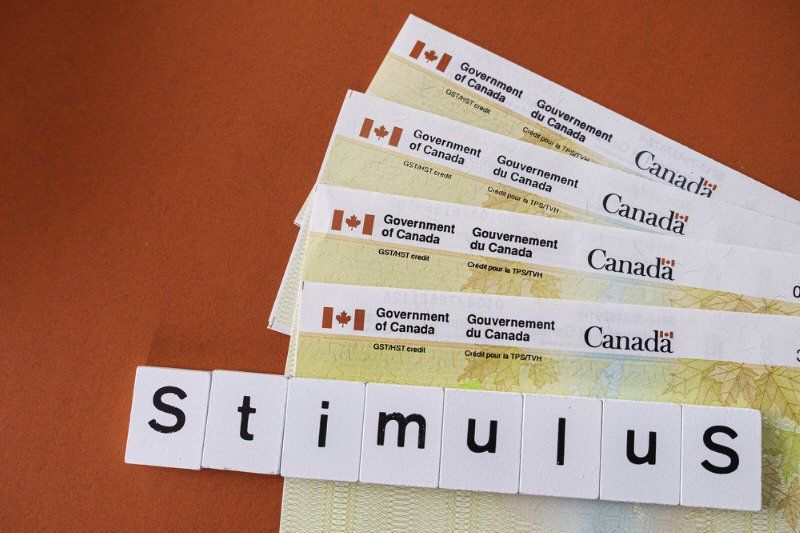3 Personal Tax Changes You Don’t Want to Overlook for the 2020 Tax Year
It’s pretty clear that a lot has changed since this time last year.
Now, masks are a functional fashion accessory that everyone has several of. Social distancing has become the norm in most cities.
Plus, talking about vaccines has become equivalent to talking about the new Netflix show.
While 2020 has been really challenging for many people, there have been some good things to come out of it, too. For example, we’ve had more time to spend with our families at home, getting to know each other on a deeper level.
We’ve focused more of our efforts on supporting small businesses in the community, too. And, going for a walk and enjoying the fresh air is now as exciting as going out for a night with your friends.
Just like there have been changes in our lives, 2020 has brought some interesting changes when it comes to your
personal taxes as well.
Now with the tax deadline approaching, it’s important to be aware of the personal tax changes that can help you keep more of your money in the bank.
Here are 3 things you must consider before filing your 2020 taxes.
1. COVID-19 payments from the government are taxable income
The federal government has provided a number of COVID-19 support payments to people during 2020. These include:
- CERB (Canada Emergency Response Benefit),
- Canada Recovery Benefit,
- Canada Recovery Caregiving Benefit,
- Canada Recovery Sickness Benefit,
- Canada Emergency Student Benefit.
If you have received any of these benefits, note that they have to be reported as taxable income on your 2020 personal tax return.
It is true that there was some confusion in the messaging around who was eligible for these benefits. This was specifically around whether self-employed individuals could receive Canada Emergency Response Benefit (CERB) based on their required minimum income (which had to be $5,000 in the last 12 months prior to applying).
The confusion was surrounding whether that $5,000 was for gross or net income. In February 2021, the federal government cleared up the issue and specified that if any self-employed individuals qualified based on their gross income (not net income), they would not have to repay the benefit — as long as they met all other eligibility criteria.
If you have already paid back the benefit amount, then the Canada Revenue Agency (CRA) will actually return the amount back to you.
If you received any of these benefits, especially Canada Emergency Response Benefit (CERB) as a self-employed individual, it’s best to
speak with a CPA firm like Bridex to ensure that all of your personal tax paperwork is in order — and you’re reporting the correct amount of taxable income. Bridex can also help you determine whether you’re eligible for any of the COVID-19 benefits.
2. The enhanced basic personal amount is increasing
The basic personal amount (BPA), is a non-refundable tax credit that every person filing personal taxes is eligible to take. It enables those who have an income of less than the basic personal amount to gain relief from any provincial taxes.
If you make more than the basic personal amount, there are some changes to be aware of for the 2020 tax year:
- In 2019, the basic personal amount was $12,069. This was the same for all taxpayers regardless of income. However, this has changed in 2020 and is based on your income.
- If your net income was $214,368 or more in 2020, you can claim a basic personal amount of $12,298 on your personal tax return.
- If your net income was $150,473 or less in 2020, you can claim an enhanced basic personal amount of $13,229.
- If your net income was between $150,473 and $214,368, you can claim a prorated basic personal amount.
- This enhanced basic personal amount system applies to maximum spousal and common-law partner amounts, in addition to maximum amount for eligible dependents.
- Any graduated tax brackets and non-refundable credit amounts have increased by 1.9% in 2020 to account for inflation.
If you’re eligible to claim the enhanced basic personal amount, contact Bridex to ensure you’re taking advantage of the tax credit correctly on your personal tax return.
3. There is a brand new training credit you may be eligible for
Training costs can add up when you are trying to further your career or enter a new one with additional certifications and experience. To help those who are between 26 and 65 with the costs of training, the government of Canada is introducing a new refundable tax credit for the 2020 year.
The new Canada Training Credit (CTC) enables you to accumulate $250 towards the Canada Training Credit Limit (CTCL) account. To be eligible for this credit, you must:
- Have a 2019 working income of at least $10,000. This may include self-employment income, employment income, grants, scholarships and bursaries, and maternity and paternity EI benefits.
- Have a 2019 net come of $147,667 or less.
If you meet the eligibility criteria, then your Canada Training Credit Limit (CTCL) account accumulates up until a maximum of $5,000 is reached.
In order to use this credit, you need to be enrolled in a training program or course, and can apply 50% of the costs of the program towards the balance of the account during the same year you have paid your tuition. A CPA firm like Bridex can help you figure out whether the remaining 50% of your tuition is eligible for tax credits as well.
If you have any unused credits in your Canada Training Credit Limit (CTCL) account, they will expire when you turn 65. This gives many people a long time to use these credits towards the various training and courses they may take over the course of their careers.








